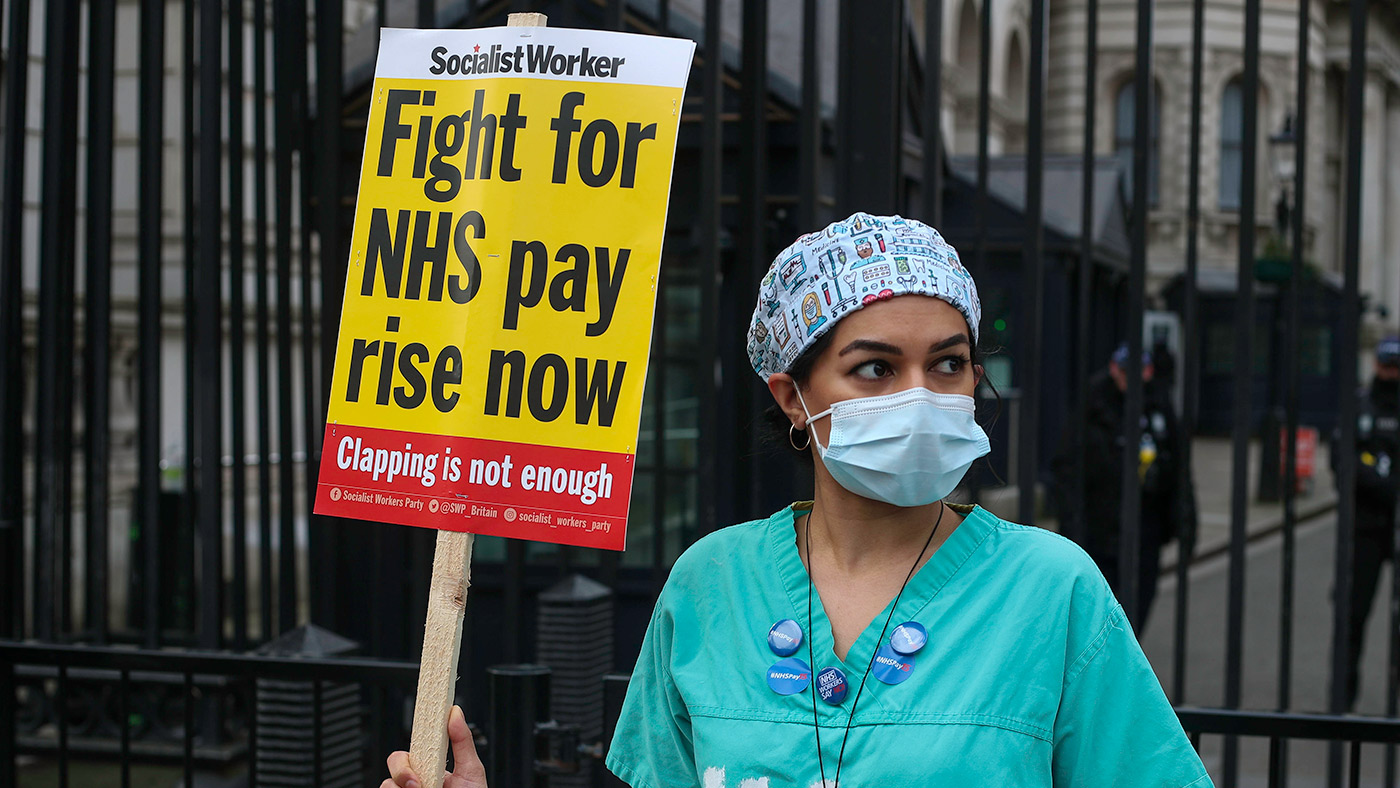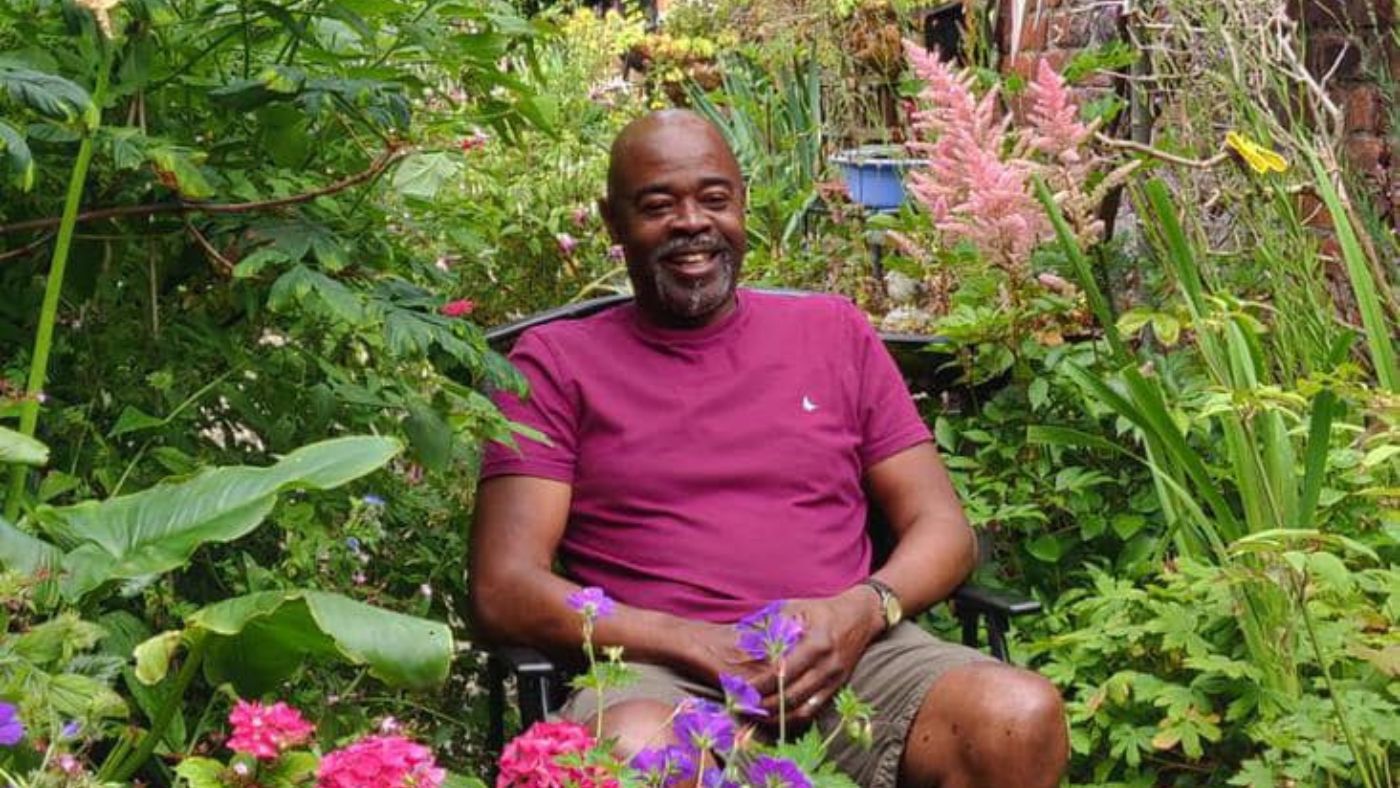National nursing strike: should the patient ‘always come first’?
Recent YouGov poll found that 65% of public approves of strike action

A free daily email with the biggest news stories of the day – and the best features from TheWeek.com
You are now subscribed
Your newsletter sign-up was successful
“In the 106-year history of the Royal College of Nursing (RCN) there has never been a national strike,” said Andrew Fisher in the i news site. That looks set to change this winter: in a ballot earlier this month, nurses working for hospitals and other NHS services across most of the UK voted to strike (although around half of hospitals in England will be unaffected, because turnout did not meet the 50% threshold).
Their demand is simple: “fair pay for nursing”, after years of real-terms pay cuts (of about 20% since 2010). And it is in the interests of both nurses and patients that their demands are met. Nursing is in crisis. One in nine nurses left the profession last year alone: more than 40,000 in total.
This exodus “reflects terrible morale and low pay”. Nursing is “tough”; work-life balance is now the most common reason for leaving, except for retirement. And the exodus makes the job still harder. There are more than 46,000 vacancies in NHS England. Nurses can count on public support, said Polly Toynbee in The Guardian. A recent YouGov poll found that 65% were in favour of the strike, and only 27% were against.
The Week
Escape your echo chamber. Get the facts behind the news, plus analysis from multiple perspectives.

Sign up for The Week's Free Newsletters
From our morning news briefing to a weekly Good News Newsletter, get the best of The Week delivered directly to your inbox.
From our morning news briefing to a weekly Good News Newsletter, get the best of The Week delivered directly to your inbox.
‘Justified admiration’
“There is plenty of justified admiration for nurses,” said Ross Clark in The Daily Telegraph. We haven’t forgotten the pandemic. And unlike, say, train drivers, they are not overpaid: pay starts at £27,000 for newly qualified nurses.
But the RCN – “and that’s a trade union, lest anyone be confused, not a real college” – seems to have calculated that this means they can ask for whatever they like: in this case, a pay rise of 17.6%, more than five percentage points above inflation, though other public sector workers are reportedly having pay capped at 2%. This would cost the Treasury some £9bn.
‘Goes against nursing’
Striking also goes against a fundamental tenet of what it means to be a nurse, said Carmelah Jacobs in the Daily Mail: “that the patient always comes first”. The RCN has insisted that emergency care will be unaffected. But even so, thousands of operations, and chemotherapy and dialysis appointments, will be cancelled, at a time when the NHS is already under great strain.
“It is not too late for both sides to compromise,” said The Times. Steve Barclay, the Health Secretary, should reflect seriously on this “unprecedented action”. He won’t be able to meet their demand, but he should make a “fair pay offer” – above the current one, of around 4%.
A free daily email with the biggest news stories of the day – and the best features from TheWeek.com
Equally important, though, is a proper strategy “to solve the staff shortages that leave so many nurses overworked and hospitals overstretched”. Failing to reach a deal would be disastrous, “for nurses as well as patients”.
-
 Alexei Navalny and Russia’s history of poisonings
Alexei Navalny and Russia’s history of poisoningsThe Explainer ‘Precise’ and ‘deniable’, the Kremlin’s use of poison to silence critics has become a ’geopolitical signature flourish’
-
 Are Hollywood ‘showmances’ losing their shine?
Are Hollywood ‘showmances’ losing their shine?In The Spotlight Teasing real-life romance between movie leads is an old Tinseltown publicity trick but modern audiences may have had enough
-
 A dreamy long weekend on the Amalfi Coast
A dreamy long weekend on the Amalfi CoastThe Week Recommends History, pasta, scenic views – this sun-drenched stretch of Italy’s southern coast has it all
-
 Earring lost at sea returned to fisherman after 23 years
Earring lost at sea returned to fisherman after 23 yearsfeature Good news stories from the past seven days
-
 Los Angeles city workers stage 1-day walkout over labor conditions
Los Angeles city workers stage 1-day walkout over labor conditionsSpeed Read
-
 Bully XL dogs: should they be banned?
Bully XL dogs: should they be banned?Talking Point Goverment under pressure to prohibit breed blamed for series of fatal attacks
-
 Netanyahu’s reforms: an existential threat to Israel?
Netanyahu’s reforms: an existential threat to Israel?feature The nation is divided over controversial move depriving Israel’s supreme court of the right to override government decisions
-
 Farmer plants 1.2m sunflowers as present for his wife
Farmer plants 1.2m sunflowers as present for his wifefeature Good news stories from the past seven days
-
 Koran burning in Scandinavia: freedom of expression’s ultimate test?
Koran burning in Scandinavia: freedom of expression’s ultimate test?Talking Point Anti-Islam demonstrations have sparked condemnation and raised constitutional challenges for Sweden and Denmark
-
 EU-Tunisia agreement: a ‘dangerous’ deal to curb migration?
EU-Tunisia agreement: a ‘dangerous’ deal to curb migration?feature Brussels has pledged to give €100m to Tunisia to crack down on people smuggling and strengthen its borders
-
 Manchester alleyway transformed into a plant-filled haven
Manchester alleyway transformed into a plant-filled havenfeature Good news stories from the past seven days